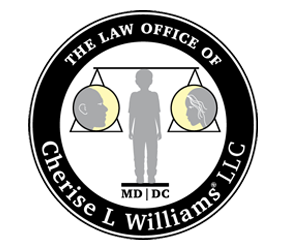High Assest Marriage & Divorce: Ways To Plan For Protection
June 27, 2023
In Maryland, there are several ways to protect high assets in divorce, especially when your case involves custody, visitation, and child support. Here are some of the best ways for you to consider if you are involved in a high asset divorce:
1. Prenuptial or Postnuptial Agreements: These legal agreements can help protect your business, individual assets, real estate, and investments by specifying how they will be divided in the event of a divorce. They can also address issues related to child support, alimony, and retirement.
2. Business Valuation: If you own a business, it is essential to have it valued by a professional to determine its worth. This valuation can help ensure that you receive a fair share or don’t provide too much of the business's value during the divorce.
3. Trusts: If you set up a trust it can help with the protection of your assets, such as real estate and investments, from being divided in a divorce. Trusts can also provide for your children's financial needs while protecting your assets.
4. Negotiating Child Support: In Maryland, child support is determined based on a formula that considers each parent's income and the child's needs. In Maryland, income for child support purposes is defined broadly and includes various sources of income. The Maryland Child Support Guidelines provide guidelines for calculating child support based on the combined income of both parents. Here are some key points regarding income definition in Maryland:
- Earned Income: This includes wages, salaries, tips, commissions, bonuses, and self-employment income.
- Unearned Income: This includes income from sources such as rental properties, dividends, interest, pensions, retirement benefits, Social Security benefits, and unemployment compensation.
- Imputed Income: If a parent is voluntarily unemployed or underemployed, the court may impute income to that parent based on their earning capacity.
- Potential Income: If a parent is capable of earning more than their actual income, the court may consider their potential income when calculating child support.
- Income Deductions: Certain deductions are allowed when calculating income for child support purposes, such as federal and state income taxes, Social Security taxes, mandatory retirement contributions, and health insurance premiums.
It’s important to note that each case is unique, and the specific circumstances of the parents may affect how income is defined and calculated for child support purposes. Furthermore, it is possible to negotiate child support payments with your spouse, especially if your income changes. You can work with an attorney to modify child support orders based on the new circumstances.
5. Alimony: In Maryland, alimony is awarded based on several factors, including the length of the marriage and each spouse's financial resources. If you are concerned about paying alimony, you can work with an attorney to negotiate a fair amount based on your financial situation.
Protecting high assets in a divorce can be a complex process, especially when children are involved. By working with an experienced attorney who specializes in family law, you can develop effective strategies to safeguard your assets and ensure fair outcomes. Remember, seeking legal advice from the Law Office of Cherise L Williams early on can help you navigate the complexities of divorce and protect your financial well-being and the best interests of your children.
More Posts

